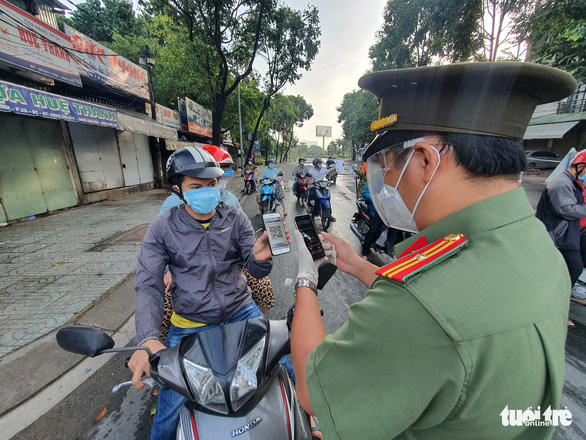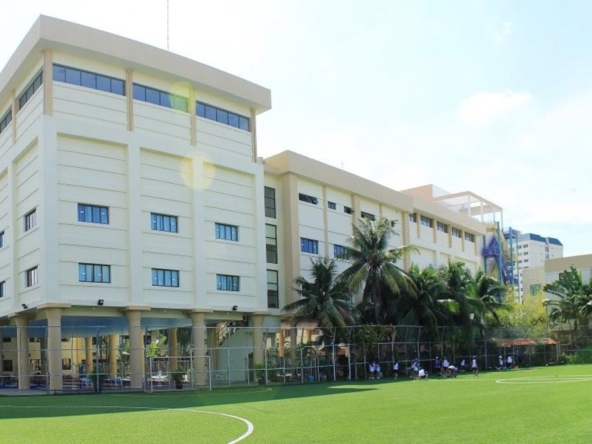They detected 30 coronavirus-positive cases and two individuals who used fake travel passes

Using the travel declaration database, patrolling officers at COVID-19 checkpoints in Ho Chi Minh City have identified 30 coronavirus-positive cases and two individuals who used fake travel passes to go outdoors since August 23, the municipal Department of Public Security announced at a press meeting on Tuesday.
During the past week, the elevated social distancing measures and the Ministry of Public Security-powered travel declaration app have concerned residents of Ho Chi Minh City, said Senior Lieutenant Colonel Le Manh Ha, a high-ranking officer from the department, at the conference.
A novel movement declaration requirement, devised by the Ministry of Public Security and considered part of the national population database, was simultaneously introduced at COVID-19 checkpoints in the city around 1:00 pm on August 14.
However, the complicated declaration system baffled the majority of commuters and clogged up traffic flow for hours, causing it to be paused for revision before its reintroduction on August 29.
Traffic volume on the city streets shows little fluctuation over the past few days, with no congestion reported, according to Ha.
Thanks to the QR code-based declaration system, police of Ho Chi Minh City have detected 30 infection cases on the streets, as well as two cases who used bogus travel passes to get through checkpoints.
Ha suggested that residents should prepare for travel declaration by filling in their information on the Ministry of Public Security’s system and saving their results as QR codes before they leave their houses.
That way, they only need to present the QR to the officers and avoid unnecessary processing time at checkpoints.
Police officers are working with the Ministry of Health and functional agencies to integrate data of coronavirus patients into their national population database, which would help identify COVID-19 cases that refuse to stay home and handle them before their actions lead to community spread, Ha said.
Regarding the risks from police officers on duty, Ha pointed out that most of the checkpoint officers have received two doses of vaccine against COVID-19, and are tested for the virus before each of their shifts, making the possibility of transmission from them relatively low.
However, the municipal force will also reminded officers not to touch residents’ phone while they scan their QR code information, as it does harbor threats of virus infection.
Instead, the officers can use their phone cameras to scan the QR code presented by residents at a safe distance.
Ho Chi Minh City is currently the gravest coronavirus outbreak site in Vietnam, recording over 221,000 cases since the fourth wave emerged in the Southeast Asian country on April 27.







